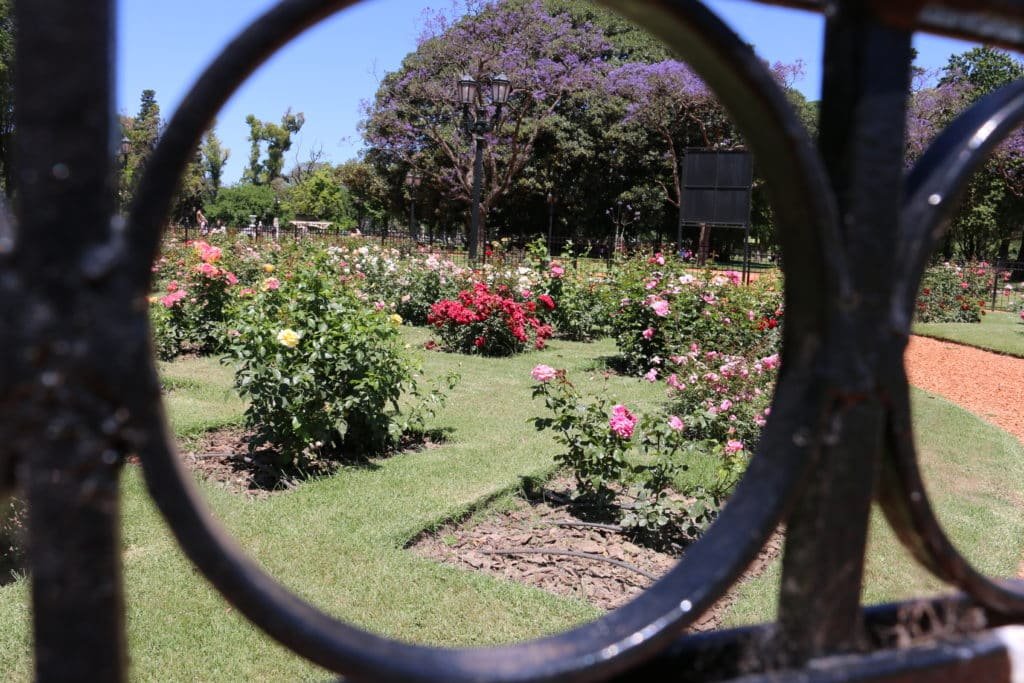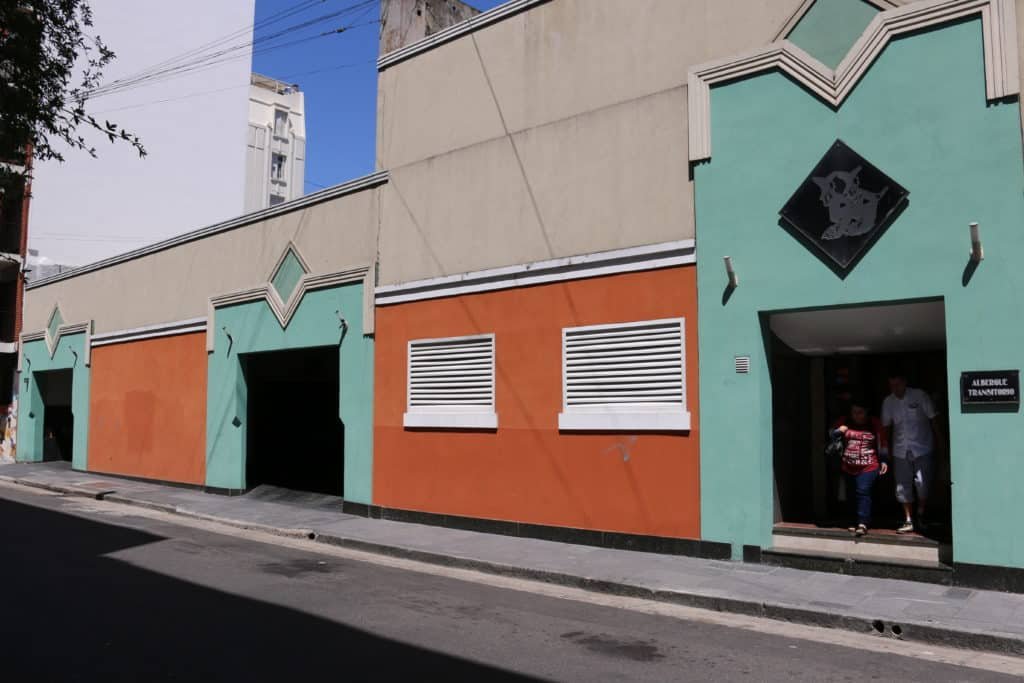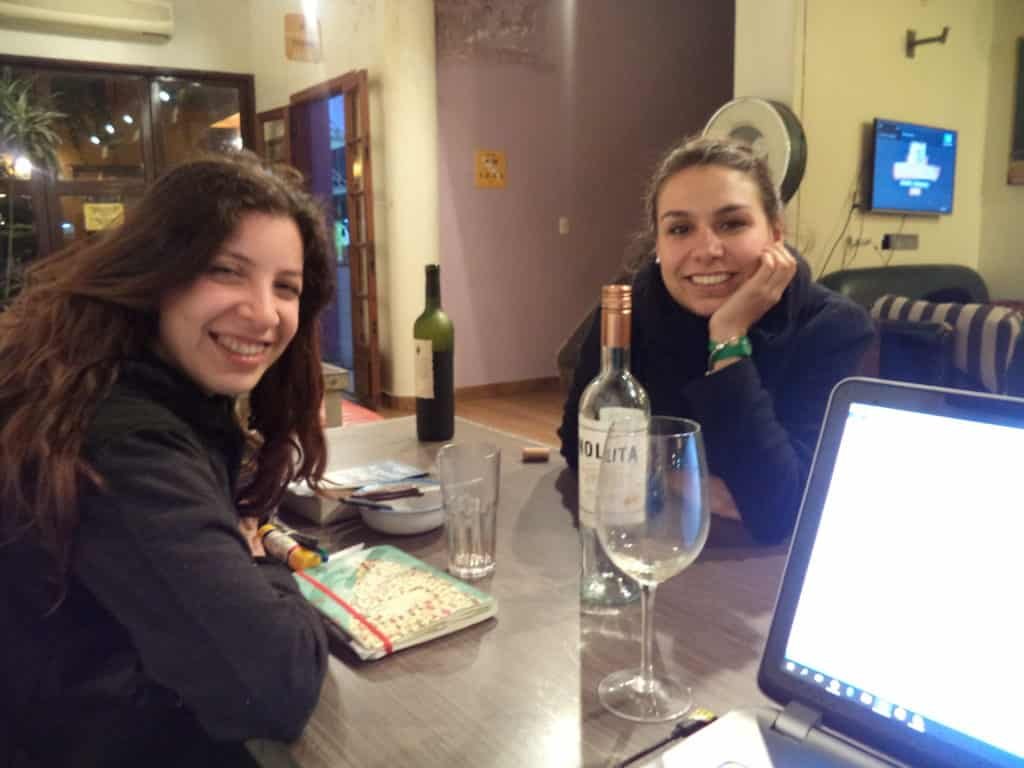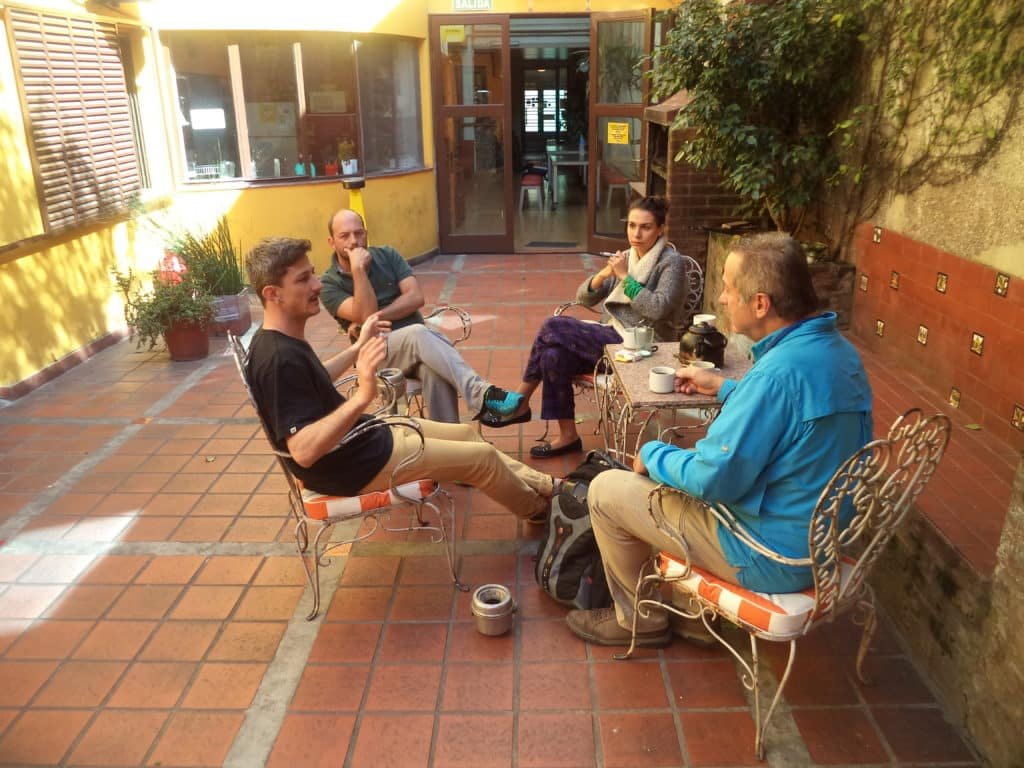by John Bechtel | Dec 20, 2016 | Argentina, Buenos Aires, Puerto Limon Hostel, South America

From the left: John Bechtel, freelance travel and culture writer; Joshua Kelsey, scholar, linguist, backpacker; William Morgan, medical science researcher. They are waiting for Rick Powell, the chef of Puerto Limón Hostel, to make his appearance after preparing Lenguado Ceviche.
Puerto Limón Hostel, Buenos Aires
I have often been asked why I continue to live in Puerto Limón Hostel here in the San Telmo barrio of Buenos Aires. There are many travelers here who have far more experience than I do with hostel life in many countries. There are 50 beds in this hostel, and other than Rick Powell, an American from Indiana who has been here for eight years, I now have the most seniority. I have become a long-term guest and I have remained here because it serves my purposes for coming to Argentina in the first place.
In the last five months I have met people from 39 countries from right here in the Community Room of Puerto Limón Hostel. This hostel has a cozy feeling to it, a touch of Tuscany, let’s say. It’s air conditioned, very clean, and well organized. But I could get all of that and more in a hotel, albeit at a higher price. What I could not get in an apartment, a home, or even a popular bar, is the opportunity to meet and engage with all these people. I find this very soul-satisfying. Relatively speaking, there are few Americans who come through here. But just last week I met the exception, the very exceptional William Morgan, a retired medical science researcher at the university level, whose specialty was malaria.
(more…)
by John Bechtel | Nov 24, 2016 | Buenos Aires, Freelance Writer, Puerto Limon Hostel, South America

The traveler
For this particular Thanksgiving Day, we will leave the worries of the world at the door and travel themeless, timeless, but not thoughtless. Here are thoughts, sights, sounds, smells, and springtime pleasures from travelers at the Puerto Limon Hostel in Buenos Aires.
The Traveler: The traveler has no safety net. At home the familiar and unchanging serve as a safety net. But the traveler needs to be in the zone, and in the flow. Otherwise he can get lost with no one to help him. He can’t bother with worry or fear. So he allows for everything and can know nothing for sure, trusting that in the end things will be as they need to be.

This is a recently published article I wrote about how the Finns stole the tango from Argentina and rebranded it to their own culture. Click on the picture to read the entire article.

Rose garden and jacaranda trees in November
In the springtime, the mind turns to love, and in Buenos Aires business picks up for the transitorios. Lunfardo, or Buenos Aires slang popular in the neighborhoods where the tango also began, had a special word for where lovers met. One characteristic of lunfardo is that it reverses the order of syllables, so that hotel becomes tel-ho. But in Spanish, the “h” is silent, so telho is pronounced as telo. On the street a telo is lunfardo slang for a transitorio, one of which is directly across the street from Puerto Limon Hostel where I have stayed for the last four months.
So what is a transitorio? It is a place where you can rent rooms by the hour in order to have sex—but it is not a whorehouse. Far from it.

A Buenos Aires “telo” or transitorio, where you can have privacy, discretion, and imagination for a reasonable price.
The lodging is provided, but not the partner.
(more…)
by John Bechtel | Nov 4, 2016 | Argentina, Buenos Aires, Puerto Limon Hostel, San Telmo

Enya (composer and lead band vocalist from Chile) and Ana (agricultural commodities specialist from Mexico) making their futures happen.
The Petri dish at Puerto Limon Hostel
This hostel of Puerto Limon is a Petri dish in which generations of humanity pass in compressed form; it is a reduction sauce that intensifies the scents and flavors of global cultures, colliding, embracing, arguing, dealing with lost loves and chasing new sensations–all in a mad, chaotic rush to imaginary finish lines: the end of a vacation, a flight from frustrations, boredom, or responsibility, or an endlessly delayed dodge of the need to return to productive life, or possibly to engage with it for the first time. The hostel is a place where you can hide from your enemies, your friends, from life, or from yourself (in the latter case, particularly is this so if you don’t like yourself, or are afraid to find out more.) The hostel is a place where you can stumble across answers to questions you were afraid to ask. Some recent specimens observed in this amazing laboratory have been:
The Vacationers
The majority of guests here are vacationers, usually from other parts of South America. These usually come in groups, sometimes just couples, and there is a lot of laughter and happy talking. They experience mild sorrow that their stay is ending, but they have roots to go back to, homes, traditions, extended families, and familiar cultures. They put in big days of sightseeing here, and go out some nights, because Buenos Aires is a city of the night. But the vacationers tend to come back a little earlier, perhaps between midnight and 2 a.m. The next day it begins all over again, and time is not to be wasted.
The Refugees
Then there are the refugees, usually from Venezuela, a country that is such a mess it makes Cuba look forward-thinking. When a guest at Puerto Limon says they are from Venezuela, you don’t have to ask if they are on vacation, or when they are planning on going “home”. They aren’t. Many of them are professionals, well educated, ambitious, and speak much better English than most Argentinians. Maybe that is because the upper middle class of Venezuala (from a time when there was a middle class at all) are the only few with enough resources left to flee the country and make their way south. The others are literally starving and millions protest in their streets. Complete lawlessness and anarchy cannot be far behind.
(more…)
by John Bechtel | Sep 16, 2016 | Argentina, Buenos Aires, San Telmo

Santana, from Dresden, Germany, has nine years of formal training in ballet and is here for the travel adventure, to improve her Spanish, and master the Tango.
In a recent conversation with one of the female residents of Puerto Limon Hostel (not Santana pictured here) in which she was discussing various men in her life, she used the expression “un hombre completo” enthusiastically describing one of them. When I picked up on the interesting expression and asked for more details, she provided the following, but since a great deal of her answer was peppered with lively and animated facial and body language, I will fill in some of the blanks with my own words, not hers. Hopefully I will accurately convey the essence of what she shared with me.,
Apparently the expression is unique to Mexico and not necessarily the entire Latin American population, and originally was applied to bulls and horses as the essence of maleness: powerful and inspiring of both awe and respect. When the bull comes out of the gate at a bullfight, with his lethal horns, rippling and powerful shoulders, back, and hind legs, he is the personification of fight, attitude and yes, danger. As a collective the crowd sucks in their breath in anticipation of the impending confrontation between the bull and the mounted matador and horse with their own combined advantages of agility, speed, and cunning.
When “completo” is applied to a man, it is about the whole man, particularly as perceived by his female counterparts. It is about first impressions, a grand entrance that commands respect, the way he moves, his self-confidence, his touch, powerful but gentle; he is relaxed and elegant. He is beautiful to the eye, whether in a $5,000 designer suit or in jeans and
(more…)
by John Bechtel | Sep 9, 2016 | Argentina, Buenos Aires, San Telmo

Hostel life can be a germination plateau for new ideas and directions.
A client of mine once said some people live their lives as if they were looking for a lost ball in tall grass. Watching people come and go at Puerto Limon Hostel in San Telmo barrio of Buenos Aires, Argentina over the course of the last month, I am inclined to agree. For those of you who are new to this conversation, I am a freelance writer who has come to Argentina to observe and write, first here in Buenos Aires, and eventually throughout South America. What is this continent all about? How does the Latin history, experience, and culture impact their thinking and choices? Argentina is a country built on immigrants, and they keep on coming. So let’s look at the diverse residents of Puerto Limon as a microcosm of Argentina itself.
I am going to divide the residents into two groups: those who live their life with purpose and those who do not. They can be millenials traveling on their parents money with $10,000 or more invested in their backpacks, cameras, and other totes. Or they can be surviving by working in the hostel for partial room and board. They may sport a PhD, or never graduated from high school. They can have an entry-level go-nowhere job or they can be experienced professionals who have been floored by one of life’s hard knocks, and deciding whether to get up or give up. Whatever their circumstances, all have a choice whether to focus or not, to act or not, to assume responsibility for the direction of their life or to wait for life to happen to them.
(more…)
by John Bechtel | Sep 3, 2016 | Argentina, Buenos Aires, San Telmo, South America

Talented Jorgia from Bahia, Brazil misses the action-orientation and passion of her home country.
One of the things I am enjoying about hostel life is that this place is a beehive of cross-pollination. What is heard here is unfiltered by teams of experts who determine what the public should or shouldn’t hear, or the politically correct interpretation that should be given to events or ideas under discussion. In a month’s time I have lost count of how many countries have been represented here, but I suspect it is close to two dozen or more. I am sometimes amused (and alternatively annoyed) when someone asks what are Argentines like, or what do they think of Americans, as if there is an Argentine mind or an American character. It is a common enough practice, but the following are excerpts from very individual (and sharp) minds culled from the noisy life of Puerto Limon hostel in San Telmo barrio of Buenos Aires. And they have opinions and experiences you may not have heard on CNN.
Are Argentines Passive?
Take Jorgia, for example, a former staffer pictured here, who went on to a teaching job somewhere. Jorgia is from Bahia, Brazil and when she completes her education here she intends to return to Brazil. Her mother tongue is Portuguese, but she also speaks Spanish and impeccably fluent English. She was a quick student as a child and she has adapted well here from all appearances. Jorgia says she gets a little homesick and she doesn’t like certain behaviors she considers common among Argentines. She feels they are too passive and gave as an example when riding on a city bus if the driver fails to stop at a scheduled location, indifferent to the people who have been standing patiently in line for the bus to stop, Jorgia says the people on the bus will say nothing, while back in her Brazilian community everyone on the bus would be yelling at the bus driver to stop; hey, didn’t you see the line back there?! The passengers wouldn’t let the bus driver get away with skipping a stop.
(more…)









Recent Comments